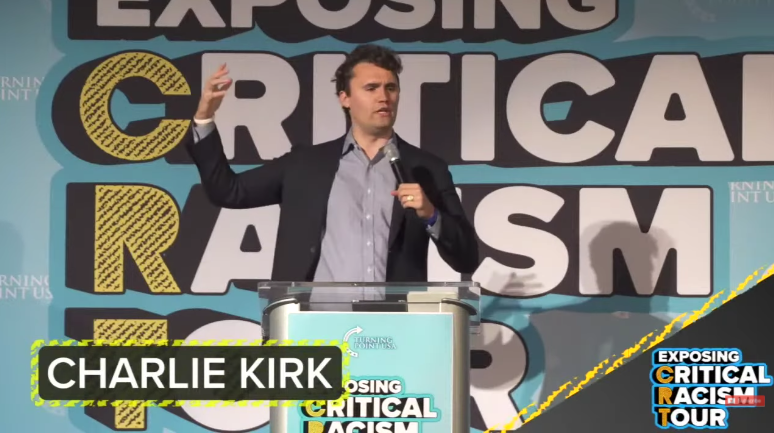The Different Paths of George Floyd and Charlie Kirk: A Comparative Study
There are two individuals that, for better or worse, have drawn a lot of attention in recent years – Charlie Kirk and George Floyd. Yet to place these two side by side would be a significant misnomer. Despite being polarizing figures, their backgrounds and experiences are markedly distinct, making any comparison not just unwarranted but also somewhat indecorous. This article is neither about commending nor vilifying either of these figures, but merely providing a deep dive into the vastly contrasting circumstances that distinguish them.
Firstly, it is important to firmly acknowledge that George Floyd, despite the stance of the Black Lives Matter movement Champions that he met a brutal and overwhelming end owing to systemic police violence, had a rather fraught personal history. Floyd had a criminal past that dates back to 1997 and spans roughly eight years, peppered with several different convictions. His most notable and perhaps most egregious offense was in 2007, where he was found guilty of an armed robbery charge and sentenced to spend four years in prison.
Fast forward to May 25, 2020 – a date forever seared into our collective consciousness; it was on this day that his life prematurely and tragically ended. The former police officer, Derek Chauvin, was the one who had him under arrest during those fatal moments for allegedly passing a counterfeit bill at a local convenience store. There were subsequent ruling and verdict on April 20, 2021, where Chauvin was found guilty of the charges that were laid against him: manslaughter and three distinct counts of murder, and was sentenced to more than 22 years in prison.
On the other side of this unlikely juxtaposition, we have Charlie Kirk. Unlike Floyd, no criminal record taints Kirk’s past. His legacy isn’t one of crime and punishment, but rather one of strong political vigor and testament of his robust Christian faith. Kirk spent a significant chunk of his life navigating across the American heartland, engaging in peaceful dialogue with individuals from a cross-section of society, irrespective of their political leanings, religion, sexual orientation or ethnicity.
Everyone, from conservative to liberal, Christian to atheist, heterosexual to homosexual or anyone from across the racial spectrum, was a potential participant in Kirk’s discourse. His open platform and willingness to engage with any and all Americans showed a level of tolerance and inclusivity that is commendable. However, on the fateful day of September 10, 2025, his life was untimely and tragically ended by an unwitting assassin who used a solitary, fatal bullet to silence him. The existence of three undischarged rounds of ammunition that bore the chilling message ‘Hey fascist! Catch!’ was just a vile testament to this heinous act.
The point of this comparison, however, is not to weigh out the merits or demerits of either man. Hence, any efforts to draw parallels or liken them to one another are both unmerited and distasteful. The thrust of the argument is not centered around Floyd or Kirk but arises from the distinct reactions their deaths elicited from various factions of our society.
Post the death of George Floyd, countless locations worldwide became venues for demonstrations, mirroring the pervasive echo of public outrage and supporting the Black Lives Matter movement. In fact, evidence of this wave of public sentiment could be found in over 2,000 cities in the U.S, spanned around 60 different nations and varied from peaceful protests to downright riots.
Yet, the instances of violence and destruction were fairly discrete. Out of all the places that experienced demonstrations, less than 10% of these locations succumbed to violent incidents and destructive protests. This is not to condone the violence, but to highlight the fact that a vast majority of these protests were relatively peaceful, despite the narrative that media often paints.
Following the brutal murder of Charlie Kirk, however, the reactions showed a stark difference. There were no violent public outbursts from conservatives. Nor did they take to the streets in sheer defiance and anger. There were zero recorded instances of businesses being plundered or property damaged as a reactionary measure to his untimely death. Despite the tragedy, the response was restrained and devoid of tumult.
Moreover, no retaliatory acts led to further loss of life following Kirk’s murder – a powerful testimony to the protestors’ preference for peace over violence. They chose to remember and mourn their fallen ally without resorting to destructive behaviors that would only serve to exacerbate societal fractures.
Yet against this backdrop of restrained response, some media channels and sections from the left continue to cast aspersions and make unwarranted accusations. The persistent attempts to blame former President Donald Trump for allegedly provoking dangerous conservative reactions to the murder of Charlie Kirk is not only unfounded, but the narratives seem to be getting fanned, irrespective of the evident lack of violent uprisings.
Surprisingly, such unfounded blames contradicts with the clear, observable evidence – there have been absolutely no violent incidents post Kirk’s death. Yet, some quarters persistently attribute this nonexistent violent backlash to Trump’s influence, a phenomenon fuelled more by politically biased narratives than factual accuracy.
In conclusion, one must comprehend that any comparison between George Floyd and Charlie Kirk undermines the individual complexities and unique circumstances inherent to each of these cases. The collective reaction following their deaths demonstrates the ideological divides and the power of the media in shaping and driving narratives.
These incidents undeniably demonstrate the pervasive political polarization that exists within our society, making it all the more important for us to cultivate mutual respect, understanding, and dialogue. We must remember: it’s not about comparing lives, it’s about empathizing with each other, working together for justice, and fostering a calm, composed conversation that drives us forward, rather than divisive rhetoric that pulls us apart.

